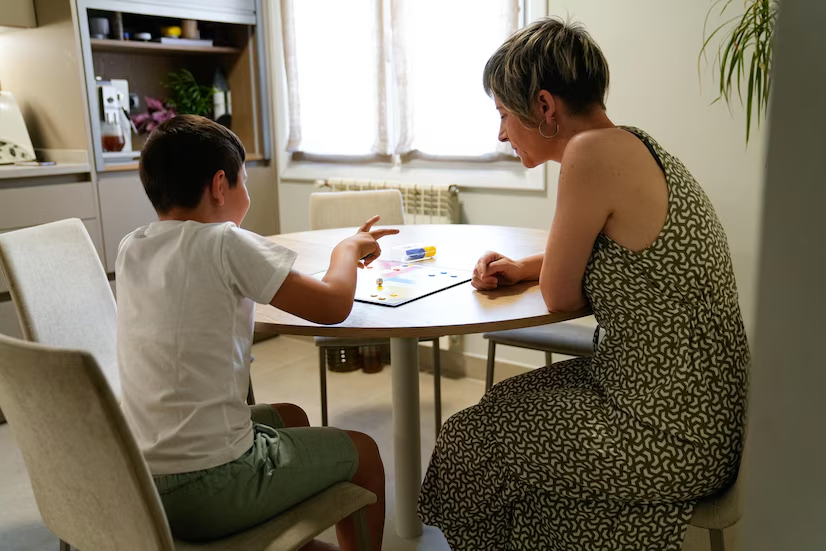We are now offering completely customized virtual neuropsychological testing assessments and remote neurofeedback! Schedule your assessment and treatment today

Neuropsychological conditions like ADHD, ASD, OCD, Dyslexia, and more can significantly impact the daily lives of both children and adults. These challenges often extend beyond the individual, affecting families, schools, and workplaces. Everyday tasks, relationships, and overall well-being can suffer when these conditions are not properly addressed.
Abbey Neuropsychology Clinic takes a holistic approach, leveraging innovative technologies and alternative mental health therapies to provide Neurotherapy near you. While medications are commonly prescribed for mental health disorders, they typically don’t address the root cause of symptoms. We provide exhaustive neuropsychological assessments that uncover weaknesses in cognitive functions and allow us to see how the brain functions from the ground up. We then design personalized treatment plans that allow you to take control of your brain function and transform your life.
A neuropsychological evaluation is a crucial first step in understanding and improving brain training therapy.During a neuropsychological evaluation, you or your child will be asked to perform various tasks designed to measure different aspects of brain function, such as:
In addition to standardized testing, our clinicians observe behavior, gather information from interviews, and review medical records to provide a comprehensive understanding of your or your child’s unique challenges. This detailed insight allows us to:
The goal of a neuropsychological assessment is to determine the best way to provide well-being for your or your child’s body and mind. Our focus is not just to uncover weaknesses in cognitive and behavioral abilities but to identify what you or your child excels at—we operate off a strength-based model that helps you improve your quality of life from the ground up.

At Abbey Neuropsychology Clinic, we offer a variety of evidence-based, noninvasive therapies to meet our clients’ unique cognitive, emotional, and behavioral needs. Whether you’re searching for alternative mental health therapies or neurotherapy treatment, our clinic provides cutting-edge solutions tailored to your needs.

Neurofeedback therapy, also known as EEG biofeedback, is a groundbreaking alternative mental health treatment. Using sensors to measure brain activity, clients receive real-time feedback to help regulate their brain waves. This therapy has been proven effective for:

Biofeedback therapy uses sensors to measure physiological activity such as heart rate, muscle tension, and skin temperature in real time. By learning to control these functions, clients can:

Visual-sensory training combines visual and sensory stimuli to improve sensory processing and brain training therapy. Techniques include:
It’s particularly effective for sensory processing disorders, learning disabilities, and neurological conditions.

Psychotherapy involves talking with a trained therapist to address emotional and mental health concerns. It can be conducted in individual, group, or family sessions and may include a variety of techniques, such as cognitive-behavioral or mindfulness-based therapies. Parent therapy focuses on addressing parents’ specific needs and concerns, typically in the context of parenting a child with behavioral or emotional challenges.

Executive function therapy focuses on improving the cognitive skills known as executive functions. Executive function therapy may involve a variety of techniques, such as goal setting, problem-solving, and time management training. Executive function therapy improves an individual’s ability to manage their daily life and achieve their goals.

Attention and focus training is designed to improve an individual’s ability to focus and maintain attention on a task or activity. It involves several techniques, such as mindfulness exercises, brain games, and cognitive-behavioral strategies. Attention and focus training is used to treat conditions such as ADHD, traumatic brain injury, and other neurological disorders affecting an individual’s ability to concentrate and pay attention.

Gross motor movement and cognitive training combine physical exercise with cognitive tasks to improve brain function and physical abilities. This type of training is used to treat conditions such as traumatic brain injury and developmental delays.

Reading interventions are used to help individuals who are struggling with reading or to support children’s development of reading skills. Reading interventions can take various forms, including phonics instruction, reading comprehension strategies, and reading fluency exercises.

SSP uses music and auditory stimulation to improve sensory processing and communication skills in individuals with autism, sensory processing disorder, and other conditions. It involves listening to specially designed music through headphones for a prescribed amount of time each day for several weeks.
Dealing with neuropsychological conditions can be challenging for many families. That’s why we’re committed to offering alternative mental health therapies and neurotherapy treatments tailored to your unique needs. Our comprehensive, personalized treatment plans are designed to improve core brain function, enhance focus, and transform daily life.
If you’re searching for brain training therapy, Abbey Neuropsychology Clinic is here to guide you every step of the way. Contact us today to set up a prediscovery consultation and learn more about how we can support your journey to better mental and cognitive health.
The duration of treatment depends on the individual’s specific needs and goals. Most therapies require a commitment of several weeks to months, with noticeable improvements often observed within a few sessions.
Yes, we provide ongoing support and follow-up consultations to ensure sustained progress. Our clinicians are available to adjust treatment plans as needed.